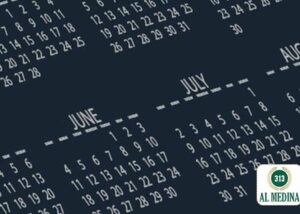Is the Hadith about Ishraq prayer’s reward of gaining Hajj and Umrah sahih?
Quran
Hadith
Islamic Text
بِسْمِ اللَّهِ الرَّحْمَنِ الرَّحِيمِ
In the Name of Allah Most Merciful Most Kind
Short Answer
The Hadith stating that Ishraq prayer has the reward of Hajj and Umrah is Hasan according to Imam al-Tirmidhi. Furthermore, many classical scholars seemed to concur with this grading.
Hadith
حَدَّثَنَا أَبُو ظِلَالٍ، عَنْ أَنَسٍ، قَالَ: قَالَ رَسُولُ اللَّهِ صَلَّى اللَّهُ عَلَيْهِ وَسَلَّمَ: مَنْ صَلَّى الغَدَاةَ فِي جَمَاعَةٍ ثُمَّ قَعَدَ يَذْكُرُ اللَّهَ حَتَّى تَطْلُعَ الشَّمْسُ، ثُمَّ صَلَّى رَكْعَتَيْنِ كَانَتْ لَهُ كَأَجْرِ حَجَّةٍ وَعُمْرَةٍ. قَالَ: قَالَ رَسُولُ اللَّهِ صَلَّى اللَّهُ عَلَيْهِ وَسَلَّمَ: تَامَّةٍ تَامَّةٍ تَامَّةٍ. هَذَا حَدِيثٌ حَسَنٌ غَرِيبٌ. وَسَأَلْتُ مُحَمَّدَ بْنَ إِسْمَاعِيلَ: عَنْ أَبِي ظِلَالٍ؟ فَقَالَ: هُوَ مُقَارِبُ الحَدِيثِ
Abu Dhilal narrated from Anas bin Malik (May Allah Most High be pleased with him) that the Messenger of Allah ﷺ said: ‘Whoever prays Fajr in congregation, then sits remembering Allah (Most High) until the sun has risen, then prays two Rak’ah, for him is a reward like that of a Hajj and Umrah.’ He said, The Messenger of Allah ﷺ said: ‘Complete, complete, complete.’ This is a Hasan singular narration. I (Imam al-Tirmidhi) asked Muhammad bin Ismaeel (Imam al-Bukhari) about Abi Dhilal. He said, his narrations are reasonable. (Tirmidhi, 586).
The Hadith narration above affirms the reward of Hajj and Umrah for a person who prays two Rakahs (cycles) after the Sun rises. Further, this Hadith is understood to be referring to praying after the Sun has risen up high, since the blessed Prophet ﷺ prohibited praying immediately after sunrise.
Additionally, Imam al-Tirmidhi graded the Hadith as Hasan. A Hasan Hadith is almost the same as a Sahih Hadith in terms of authenticity.
Classical Scholars
Many classical scholars simply reiterated the Hasan grading of Imam al-Tirmidhi when mentioning this Hadith. Despite that, some contemporary scholars consider it weak due to the presence of Abi Dhilal in the chain. However, this does not seem to be a strong position since Imam al-Tirmidhi raised this concern and yet still concluded that the Hadith is Hasan.
Conclusion
To conclude, even if one were to incline towards the opinion that this Hadith is weak, it would still be permitted to act upon it and propagate it. Furthermore, this is because the Hadith scholars have permitted and even encouraged the use of weak Hadith for Nafl (supererogatory) matters. However, one must follow the rules of narrating weak Hadith when doing so.
And Allah Most High Knows Best.
–Answered by Shaykh Noorud-deen Rashid (26.06.23)






